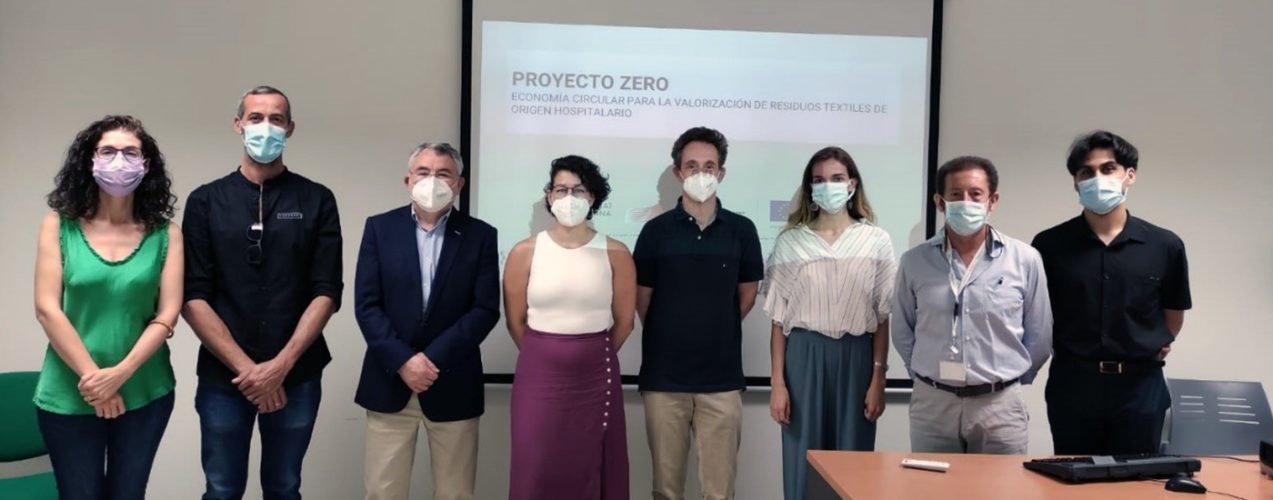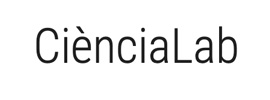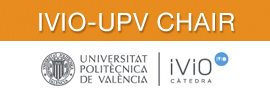The ZERO project arose with the aim of creating a circular textile waste recovery system with the involvement the principal Valencian stakeholders. With this in mind, the project is studying ways to recycle disposable hospital gowns when they reach the end of their life cycle with the aim of obtaining new products with high added value. The intention is to develop new plastic materials with high performance and lower costs of production, this way significantly reducing the environmental impact.
With this strategy they expect improvements to the competitiveness and productivity of the sector thanks to an efficient consumption of resources and a reduction in waste generation, which are two fundamental pillars in a sustainable, competitive and environmentally friendly textile model
Currently, this project is being carried out by the companies Aupa Hogar and Plastics Casaravi, in cooperation with Fisabio through the Hospital Universitari Francesc de Borja de Gandia, with the collaboration of researchers from the Universitat Politècnica de València and the Instituto Tecnológico Textil (Aitex).
Hospital Waste
Worldwide, the environmental impact of this sector has become a worrisome issue. In fact, in 2015, it was responsible for 92 million tons of waste. For their part, hospitals generate large amounts of textile waste from single-use equipment. Due to the Covid-19 crisis, the consumption of personal protective equipment has increased exponentially.
According to the latest activity report from the Gandia Health Department, in 2018, the Francesc de Borja University Hospital generated 650,000 kilograms of waste, of which 90% was deposited in a landfill and the rest was incinerated. The project focuses on the use of 10% of the total, which corresponds to all single-use textile material.
With the implementation of the ZERO project, it will be possible to process and repuprpose waste to be used as raw material in other production processes, thus providing circularity to the textile value chain related to hospital material.
Circular Value Chain
The initial task of the consortium focused on designing disposable gowns by the company AUPA, which were supplied to the Hospital Universitari Francesc de Borja de Gandia. There, the healthcare personnel – specifically one hundred people – test the quality of the gowns, both in their preparation and in the material used, identifying needed improvements. Once they reach the end of their life cycle, they will be disinfected and dried in the same hospital. The waste will be transported to the Casaravi company facilities, where it will be recycled into polypropylene pellets. This material will be used to manufacture new gowns, thus closing the cycle.
The AITEX technology center will be in charge of waste recovery using conventional spinning techniques to produce recycled fibers. validar el sistema propuesto y su sostenibilidad. In parallel, Ignacio Guillén from the Universitat Politècnica de València (UPV), is leading the research team that is carrying out the study of the environmental impact associated with the production chain, as well as an estimate of the carbon footprint in each of the stages of the process, this way validating the proposed system and its sustainability. Romina del Rey, research professor at Campus Gandia of the UPV, is also taking part in this project.
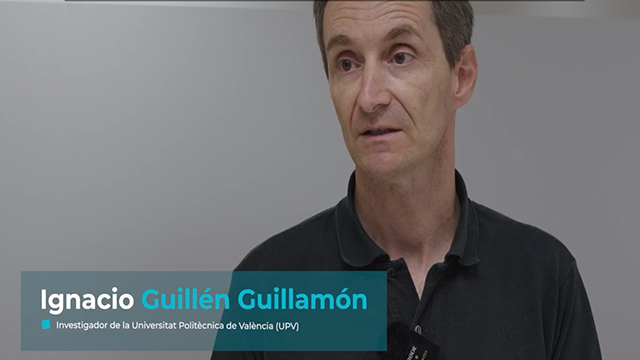
As for Fisabio, their Statistical Studies Service is designing a questionnaire to evaluate the opinion of healthcare personnel on the quality and usability of the new gowns provided. With this questionnaire they will be able to assess the suitability of the new material, as well as possible improvements.
This sustainable production model will reduce the carbon footprint and implement a waste collection and management circuit that could be extended to the rest of the hospitals in the Valencian Community, also promoting intersectoral cooperation between hospitals, textile and recycling companies.
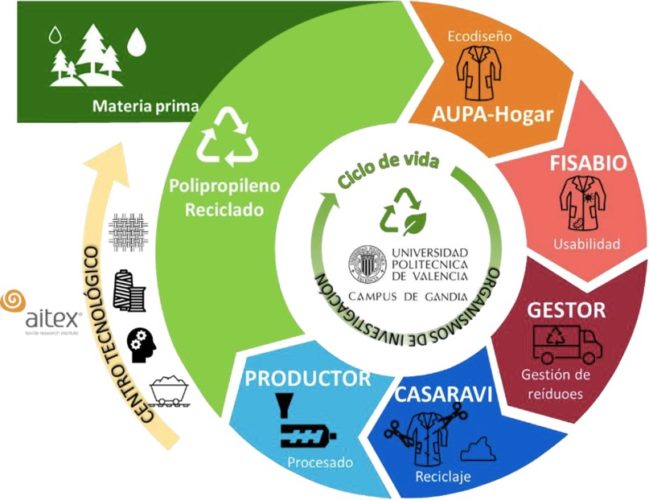
Funding from the Valencian Innovation Agency (AVI)
The idea for this project emerge thanks to the Safor Salut program (promoted by Fisabio, Campus Gandia (UPV) and FAES Safor), with the focus on reducing the carbon footprint of textiles for hospital use, which has now been materialized in a strategic project of the Valencian Innovation Agency (AVI), and was initially funded by the Polisabio programme.
SAFOR SALUT TEAM
Campus de Gandia (UPV): Pilar Sánchez | psanche@upv.es, Amparo Estruch | maesmon@upv.es
Fisabio: María Prada | prada_marmar@gva.es, Amparo Arlandis | arlandis_ampviy@gva.es, Elena Carrió | carrio_elearg@gva.es, Silvia Llàcer | llacer_sil@gva.es
Empresas-FAES: Josep Miquel Juan| mjuan@cev.es Fina López | info@faesafor.com
Project funded by:

